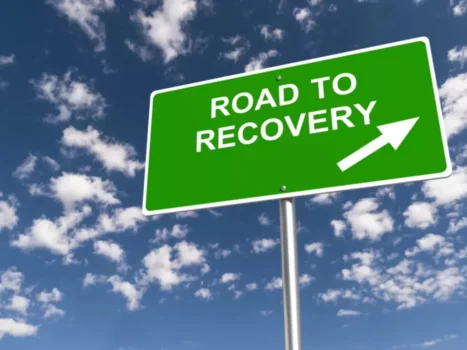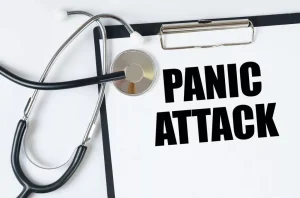
Although seizures occur in the context of alcohol withdrawal, frequently other signs of alcohol withdrawal syndrome are not present because they develop gradually (25). The seizure type is predominantly the generalized tonic-clonic, https://ecosoberhouse.com/ occurring singly in about 50% of cases or occurring as a series of seizures within a 6-hour period (68). In principle, patients have a nonfocal neurologic examination and alcohol blood levels must be close to zero g/dL.
Patient Profile

As a general rule, the longer you have been drinking over time and the more you drink, the higher your risk for developing withdrawal symptoms, which may include seizures. Benzodiazepines are effective in the primary prevention of ethanol-withdrawal seizures during alcohol detoxification. In contrast, intravenous phenytoin was not effective in preventing a second ethanol withdrawal seizure. Status epilepticus in the setting of ethanol withdrawal should be treated according to standard protocols, including the use of phenytoin. The long-term administration of anticonvulsants for uncomplicated ethanol withdrawal seizures is unnecessary and possibly dangerous.

Contact Discover Recovery for Help with Alcohol Addiction Treatment
Factors that facilitate seizures chronically or temporary lower the threshold for seizure occurrence by interfering with generic neuronal excitability [39]. A relatively well-understood model of extrinsically facilitated non-reflex seizures has been described in the context of alcohol withdrawal [40]. Due to increasingly early consumption of alcohol and drugs in some Western societies, special importance is drawn towards the effect of alcohol and stimulants that can trigger seizures or lower the seizure threshold [40,41]. There is relatively little data on the relationship between alcohol and seizures but roughly 25% of alcoholics suffer from seizures, most of which occur during withdrawal [42].
Medication for Alcohol Treatment
Researchers do not currently know exactly how topiramate works in alcohol use disorder cases. Nevertheless, the medication may effectively reduce cravings in people who are dependent on alcohol. Regular alcohol consumption may begin as a way to bolster confidence in social settings or unwind after work or on weekends. Over time, the body adapts to frequent consumption and needs more alcohol to achieve the same effect. The term alcohol use disorder (AUD) refers to a spectrum that includes varying degrees of alcohol abuse, dependency, and addiction.
- It is hypothesized that seizure activity propagates from the IC to deep layers of the superior colliculus (a major output of the IC) to trigger the wild running phase of the audiogenic seizure.
- If you think you may be struggling with alcoholism or have experienced an alcohol-induced seizure, it may be time to seek professional help.
- Alcohol abuse can affect every area of an individual’s personal and professional life.
- Many of the effects of drinking every day can be reversed through early intervention.
If you’ve gone through opioid withdrawal before, you may need to experience the kindling effects. However, alcohol withdrawal can still be dangerous, even without kindling. The kinds of withdrawal symptoms you experience will depend on the substance you were dependent on. Alcohol is a central nervous system depressant, which means that it slows down nervous system activity in the brain. When that depressant is removed, you may feel a sudden lack of its rewarding effects, leading to nervousness, insomnia, and anxiety. A professional health sciences librarian (MDW) developed our search strategy.

Overview of Alcohol-Related Seizures: Can Drinking Alcohol Cause Seizures?
Alcohol use can also trigger seizures in people with epilepsy if withdrawal symptoms begin to occur. Epilepsy can cause seizures to occur with more mild levels of alcohol withdrawal than would occur in most people. Withdrawal seizures can begin within just a few hours after stopping drinking, or they can take up to 72 hours to start. Withdrawal is something that happens when your body has become dependent on the presence of drugs or alcohol. When you suddenly stop using that substance, your body goes through withdrawal symptoms as it adjusts to the absence of the addictive substance; this is why alcohol and seizures have a relationship with one another.

The authors conclude that more stringent evaluation for this treatment modality is needed [49]. alcohol withdrawal seizure is known as a disease in which seizures are generated in relation to alcohol, but chronic alcohol consumption itself is known to lower the seizure threshold. Because of the risk of seizures and other serious symptoms, detoxing from alcohol should only be attempted with medical support. These changes can promote seizure activity in people with and without epilepsy during periods of alcohol withdrawal.
Sleep hyperkinetic (hypermotor) epilepsy
If you are dependent on alcohol, it’s important to participate in a medically-supervised detox program, which can help alleviate the risks of the situation. The risk of experiencing alcohol withdrawal seizures is highest within 48 to 96 hours after quitting alcohol, as are the chances of suffering from severe agitation and vivid hallucinations. Withdrawal occurs when a person drinks large quantities of alcohol for a period of time and then suddenly stops or reduces their intake.
